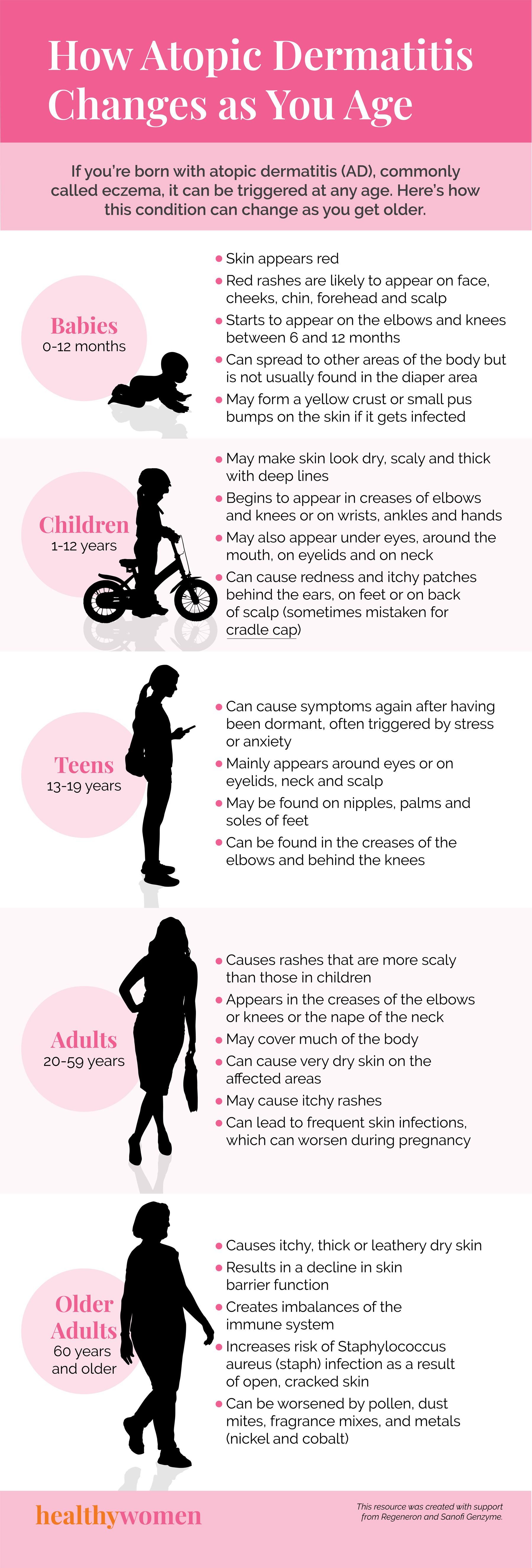Babies (0-12 months)
- Skin appears red
- Red rashes are likely to appear on face, cheeks, chin, forehead and scalp
- Starts to appear on the elbows and knees between 6 and 12 months
- Can spread to other areas of the body but is not usually found in the diaper area
- May form a yellow crust or small pus bumps on the skin if it gets infected
Children (1-12 years)
- May make skin look dry, scaly and thick with deep lines
- Begins to appear in creases of elbows and knees or on wrists, ankles and hands
- May also appear under eyes, around the mouth, on eyelids and on neck
- Can cause redness and itchy patches behind the ears, on feet or on back of scalp (sometimes mistaken for cradle cap)
Teens (13-19 years)
- Can cause symptoms again after having been dormant, often triggered by stress or anxiety
- Mainly appears around eyes or on eyelids, neck and scalp
- May be found on nipples, palms and soles of feet
- Can be found in the creases of the elbows and behind the knees
Adults (20-59 years)
- Causes rashes that are more scaly than those in children
- Appears in the creases of the elbows or knees or the nape of the neck
- May cover much of the body
- Can cause very dry skin on the affected areas
- May cause itchy rashes
- Can lead to frequent skin infections, which can worsen during pregnancy
Older Adults (60 years and older)
- Causes itchy, thick or leathery dry skin
- Results in a decline in skin barrier function
- Creates imbalances of the immune system
- Increases risk of Staphylococcus aureus (staph) infection as a result of open, cracked skin
- Can be worsened by pollen, dust mites, fragrance mixes, and metals (nickel and cobalt)
This resource was created with support from Regeneron and Sanofi Genzyme.
From Your Site Articles
- What It's Like to Care for a Child With Severe Eczema - HealthyWomen ›
- Atopic Dermatitis Shows Up on Your Skin, but Its Effects Go Much ... ›
- Clinically Speaking: Questions to Ask Your Healthcare Provider ... ›
- Living With Atopic Dermatitis (AD) - HealthyWomen ›
- Coping With Atopic Dermatitis - HealthyWomen ›
- Options for Treating Atopic Dermatitis - HealthyWomen ›
Related Articles Around the Web








